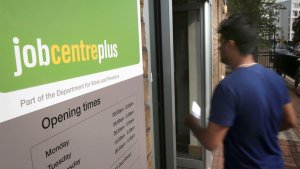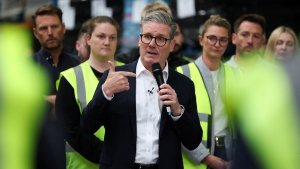Next month’s budget should secure the economic recovery from Covid, and not look to fix public finances, the Institute for Fiscal Studies said
Chancellor Should Phase Out Furlough Gradually, Says IFS
Next month’s budget should secure the economic recovery from Covid, and not look to fix public finances, the Institute for Fiscal Studies said

Lower-income households are facing a higher risk of unemployment this year, as “deferred” company failures line up as the furlough scheme ends, experts will warn on Tuesday.
The group has “dissaved” as their higher-income counterparts managed to build up an extra £125 billion worth of savings while being stuck at home, with little to spend the money on.
Ahead of next month’s budget, the Institute for Fiscal Studies (IFS) and Citi Research said that it was vital to ensure that the furlough scheme and other Government support is unwound gently, rather than coming to an abrupt halt.
However, they also said that the economy will not be able to adjust properly as long as the furlough scheme is still in place.
It should be “phased out as soon as conditions allow”, the researchers said. However, the £20 a week increase that people on Universal Credit have been handed could stay, they argued.
IFS director Paul Johnson said that Chancellor Rishi Sunak’s second budget – but 15th major fiscal event – should strike a balance between supporting jobs and businesses and getting the economy standing on its own feet.
It should set out to secure the recovery, and not fix the public finances.
“Any significant continuation of the furlough scheme must be limited and carefully targeted,” he said.
“In the recovery phase (Mr Sunak) needs to support jobs and investment, but also crucially needs to recognise and address the multiple inequalities exacerbated by the crisis.
“Fiscal policy should lean against the effects of looser monetary policy which has again benefited the older and wealthier at the expense of the younger and poorer.”
A move to keep the £20 rise in Universal Credit in place would cost around £6.5 billion in the long term. But removing it could see some single, childless adults see their income fall by a fifth, the IFS said.
Last weekend, the Government revealed that the NHS had administered 15 million first-dose vaccines to people across the UK.
But, the Citi analysts said that while the vaccine is likely to underpin a rapid recovery, it will ultimately also be incomplete.
They added that substantial reconfiguration will be necessary over coming years.
Even by the end of 2021, the economy is likely to still be 3% below its pre-pandemic level, according to the central scenario forecast by the analysts.
Borrowing is expected to hit around £400 billion during the financial year, the highest levels in history, apart from during the world wars.
Citi forecast that borrowing will still be around £130 billion a year in four years’ time, around double pre-pandemic levels.
Because of low interest rates, the cost of borrowing is at historically low levels. However, the Chancellor’s hopes to balance the books while also ending austerity would suggest that HM Revenue and Customs might need to raise a further £60 billion through taxes.
This figure is shrouded in uncertainty, the experts warned.
Mr Johnson added: “In all this (the Chancellor) is facing huge economic uncertainties as the economy adjusts to the triple challenges of Brexit, recovery from Covid and the move to Net Zero.
“It is possible that that growth will be fast enough that big fiscal deficits will largely dissipate of their own accord. But that is not a central expectation: more likely we are on track for ongoing unsustainable deficits.
“For now, Mr Sunak needs to focus on support and recovery. A reckoning in the form of big future tax rises is highly likely, but not as yet inevitable.”
Thanks for signing up to Minutehack alerts.
Brilliant editorials heading your way soon.
Okay, Thanks!

